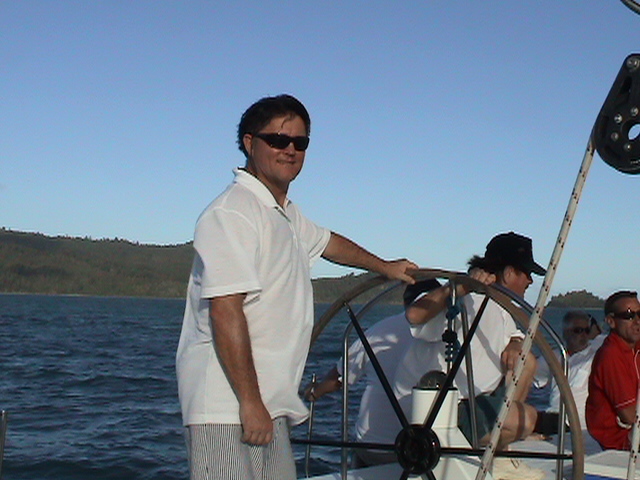Investment Style
AC’s investment style is based on a fundamental belief that securities markets are not fully efficient and opportunities exist at the country, asset allocation, sector and individual stock selection levels, to add value through superior stock selection and ongoing active management of portfolios.
AC’s investment style is high conviction and index-unaware. The preference is to establish a core group of holdings in a portfolio around which are placed more speculative stock-picks. Return is sought from a combination of share price growth and dividends or interest received. Fundamental analysis seeks to determine relative intrinsic value and growth characteristics of each security, but ignores the very important part that sentiment plays in determining share prices in the short-term. Individual share prices can, for quite long periods, diverge from perceived underlying fundamental or intrinsic value. Varying the size of holdings can adjust exposures in the short-term.
Core holdings are determined by a fundamental combination of top-down economic analysis and bottom-up assessment of the individual companies. AC develops themes about the market from analysing the global drivers that greatly affect individual share prices that have very little to do with the individual companies themselves.

Investment Philosophy
Top- down approach
The impact of industrialising China, the global financial crisis, digitalisation and A.I. advances have had profound effects on particular sectors in the economy. Demographic changes and decarbonisation are adding to these thematic influences. Understanding these top down influences is both a challenge and an opportunity. For example, after many years of low interest rates, we’ve entered a period post covid of rising long term interest rates. This should act to temper any excessive enthusiasm in the share market until the adjustment process is complete.


Investment Philosophy
Bottom-up Fundamental Approach
AC also takes a stock-specific, bottom-up approach to investment selection and does not have a particular style bias. In order to maximise the number of potential investment opportunities the investment universe includes all securities listed, or about to be listed on the Australian Stock Exchange (ASX).
AC’s bottom-up approach is overlaid with a strong risk management process which takes into account macro themes and other issues impacting, or likely to influence markets.
Investment Philosophy
Long-Term Investment Focus
AC’s preferred investments have the ability to grow earnings or asset values for some years to come, so that even if share markets deteriorate, valuation will eventually prevail.

Investment Philosophy
Active weightings
AC’s flexible investment mandates extends to each portfolio’s cash holding, with cash being held until suitably attractive investments are discovered and purchased or markets look more favourable. There is therefore no specific cash weighting. Investments are made when the reward/risk equation is compelling.
As such a portfolio’s cash weighting may vary significantly over time, depending upon the number of suitably attractive investment opportunities available and the perceived level of market risk.
Investment Philosophy
Autocratic Decision-Making
Research into the relationship between investment performance and size of investment team demonstrates, with few exceptions, a strong inverse correlation between the two. In other words, the more internal people helping an investment manager make decisions the more likely it is that performance will suffer.

Large investment groups tend to suffer from the problem of what John Maynard Keynes dubbed the “institutional imperative”. It’s what leads insurance groups all around the world to invariably have their highest proportional exposure to equities at the top of bull markets (1929, 1972, 1987, 2007) and their lowest at the bottom (as in 1933, 1974, 1994, 2003, 2008). And a 60/40 portfolio invested 40% in fixed interest even though long term interest rates were at all-time lows as in 2022. The investment decision-making process becomes polluted by the needs of corporate boards, compliance, marketing and trainee research executives that lead inevitably to sub-optimal or sometimes catastrophic asset allocation investment decisions (although perfectly satisfying corporate governance at the time).
In Australia, as elsewhere, research evidences that the most likely investment structure to deliver performance is an autocratic one – a highly experienced investment manager with a strong research background (or a small team each with personal responsibility for managing money) who then ruthlessly seek out the best investment ideas from external experts they trust (yes including stockbrokers!) and filter these ideas rather than relying purely on internal researchers or an investment committee meeting periodically.
In Australia as well as elsewhere, the success of boutique investment managers reflects this and the public’s recognition. In the USA, Warren Buffett is the world’s most successful boutique manager. For years Peter Lynch was a classic autocratic manager. The past ten years has vindicated this approach, with the Managed Equity portfolio outperforming the ASX200TR by over 5% per annum (October 2013 inception to December 2023) after fees.

Investment Philosophy
Far from the madding crowd
As a generic observation, because stockbrokers are absorbed minute by minute with daily market action they risk losing focus on the strategic intent of a portfolio. Portfolio managers tend to be more strategically oriented.
Experience suggests there are benefits in being able to emotionally distance oneself periodically from the marketplace. Geographical distance can help with this emotional distancing. Warren Buffett is based in Omaha Nebraska, just about as far away from the financial capital as is possible in the USA. That has clearly worked for him for several decades. John Aldersley is based in St Huberts Island, nearly two hours from Sydney. Given modern technology, the same or even better systems are available at the touch of a keyboard.

